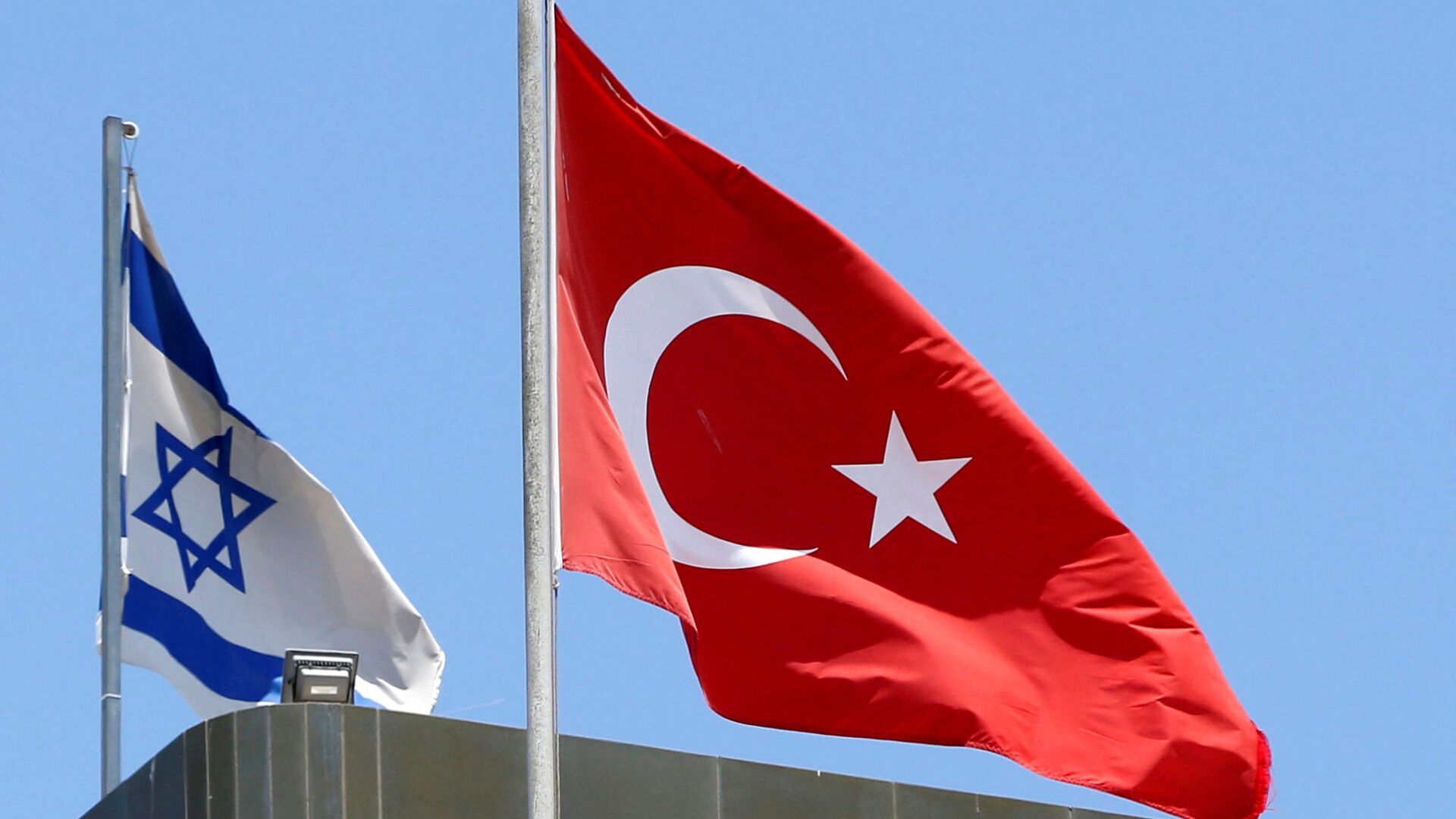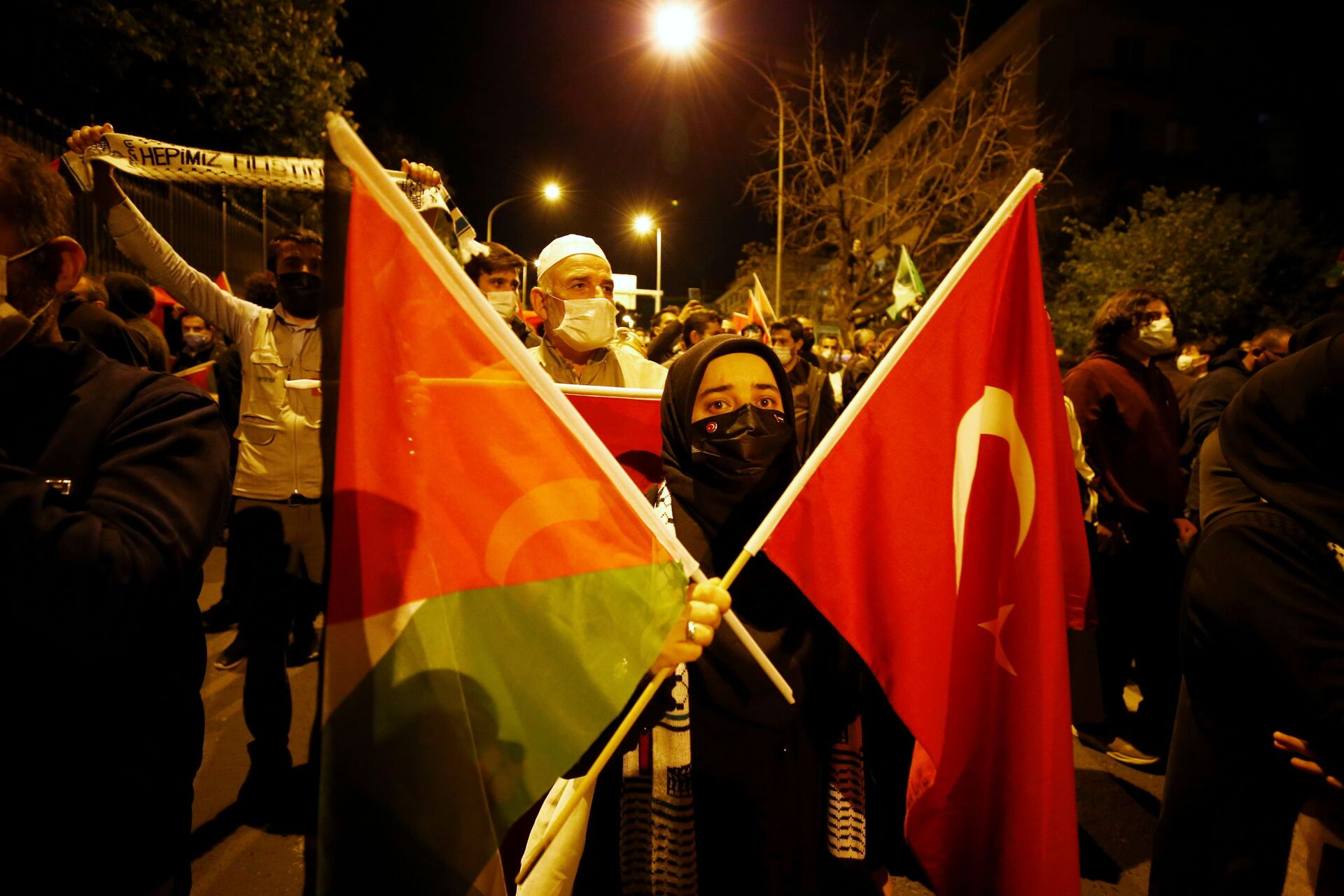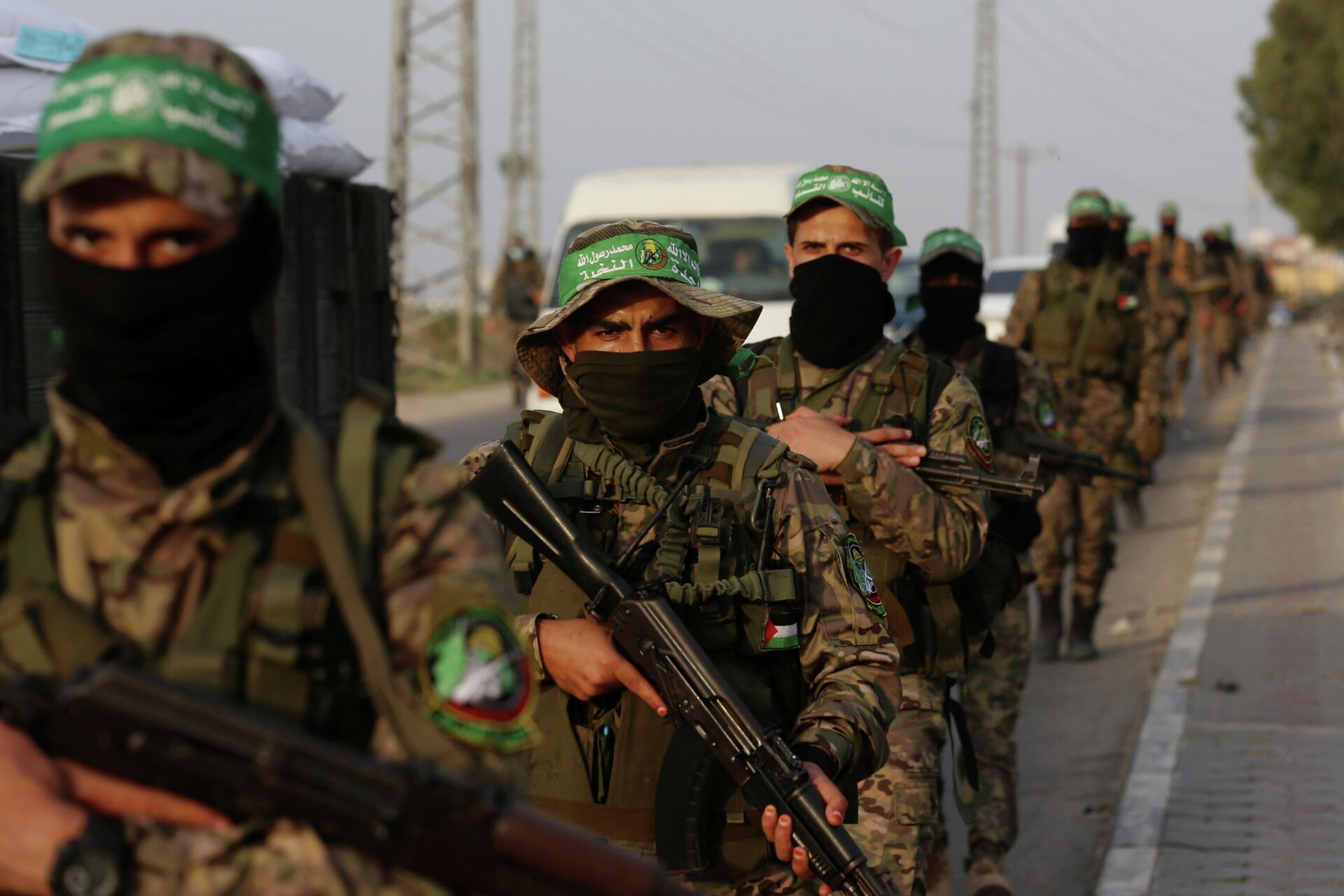https://sputnikglobe.com/20220404/what-will-happen-to-hamas-if-turkish-israeli-relations-get-back-on-track-1094457798.html
What Will Happen to Hamas If Turkish-Israeli Relations Get Back on Track?
What Will Happen to Hamas If Turkish-Israeli Relations Get Back on Track?
Sputnik International
Over the years, Ankara has stood by the side of the Islamic Group in control of the Gaza Strip since 2007. Turkey has been providing Hamas with financial and... 04.04.2022, Sputnik International
2022-04-04T07:03+0000
2022-04-04T07:03+0000
2024-01-30T10:26+0000
middle east
turkiye
hamas
israel
palestine
https://cdn1.img.sputnikglobe.com/img/104447/10/1044471076_0:151:2041:1299_1920x0_80_0_0_c43cb39c610f6dae485b843551d19420.jpg
In mid-March Israel's President Yitzhak Herzog paid an official visit to Turkey, becoming the first Israeli leader to do so since 2008. And now it appears that Prime Minister Naftali Bennett is going to follow in his footsteps.It is not really clear when such a visit is going to take place. For now, Israel hasn't confirmed it, but Turkey's President Tayyip Recep Erdogan says it might occur "soon".A Serious HeadacheFor Israel, such a visit would mark a new chapter in relations, after a decades-long hiatus triggered by "Operation Cast Lead" in the Gaza Strip in 2008 and by the Mavi Marmara incident of 2010, when ten Turkish nationals lost their lives in a bid to break the Israeli blockade of the Strip.But for Hamas, an Islamic group that controls the Gaza Strip, a renaissance in Israeli-Turkish relations is a serious cause for concern.Standing by Hamas?Since 2007, when the group seized control over the Gaza Strip, many Arab and Muslim states have turned their backs on the organisation, branded a terrorist group in a number of countries.Turkey has never been one of them. Turkish President Tayyip Erdogan in 2020 hosted two Hamas leaders in Istanbul.Beginning of the End?Now, however, all that might come to an end, and Abu Seada says the change in attitude is dictated by Ankara's interests.Yet, domestic problems are far from being the only factor pushing Erdogan to embrace Israel. Others include the Jewish state's natural gas reserves and the fact that Israel has become the gateway to Washington, especially now, under the Biden administration that doesn't view Ankara in a favourable light.Abu Seada, however, believes Turkey will not scrap its ties with Hamas altogether. The Palestinians and their resistance movements enjoy the support of the Turkish public and severing those ties could eventually backfire. And this is why Erdogan might just want to put them on the back burner.Hamas, who understands the repercussions of any Israel-Turkey rapprochement, has already slammed Ankara for beefing up its ties with their bitter foe.If relations continue to warm up, Hamas might want to concentrate its efforts on bolstering ties with other regional players such as Qatar and Iran, that would compensate the Islamic group for the losses incurred by Ankara's rapprochement with Tel Aviv. But Abu Seada is doubtful it will go that far.Let's stay in touch no matter what! Follow our Telegram channel to get all the latest news: https://t.me/sputniknewsus
turkiye
israel
palestine
Sputnik International
feedback@sputniknews.com
+74956456601
MIA „Rosiya Segodnya“
2022
News
en_EN
Sputnik International
feedback@sputniknews.com
+74956456601
MIA „Rosiya Segodnya“
Sputnik International
feedback@sputniknews.com
+74956456601
MIA „Rosiya Segodnya“
middle east, turkiye, hamas, israel, palestine
middle east, turkiye, hamas, israel, palestine
What Will Happen to Hamas If Turkish-Israeli Relations Get Back on Track?
07:03 GMT 04.04.2022 (Updated: 10:26 GMT 30.01.2024) Over the years, Ankara has stood by the side of the Islamic Group in control of the Gaza Strip since 2007. Turkey has been providing Hamas with financial and diplomatic support, as well as giving refuge to many of the organisation's members.
In mid-March Israel's President Yitzhak Herzog paid an official visit to Turkey, becoming the first Israeli leader to do so since 2008. And now it appears that Prime Minister Naftali Bennett is going to follow in his footsteps.
It is not really clear when such a visit is going to take place. For now, Israel hasn't confirmed it, but Turkey's President Tayyip Recep Erdogan says it might occur "soon".
For Israel, such a visit would mark a new chapter in relations, after a decades-long hiatus triggered by "Operation Cast Lead" in the
Gaza Strip in 2008 and by the Mavi Marmara incident of 2010, when ten Turkish nationals lost their lives in a bid to break the Israeli blockade of the Strip.
But for Hamas, an Islamic group that controls the Gaza Strip, a renaissance in Israeli-Turkish relations is a serious cause for concern.
"This is not good news for Hamas", said Mkhaimer Abu Seada, a Gaza-based political analyst. "And the improvement of those ties will certainly come at the expense of the Islamic group", he added.
Since 2007, when the group seized control over the Gaza Strip, many Arab and Muslim states have turned their backs on the organisation, branded a terrorist group in a number of countries.
Turkey has never been one of them. Turkish President Tayyip Erdogan in 2020 hosted two Hamas leaders in Istanbul.
“Declaring the legitimate representative of Hamas, who came to power after winning democratic elections in Gaza and who is an important reality of the region, a terrorist will not contribute to efforts for peace and stability in the region", Turkey's Foreign Ministry said at the time.
Now, however, all that might come to an end, and Abu Seada says the change in attitude is dictated by Ankara's interests.
"Since 2009, after Turkey started to diminish its relations with Israel, the situation in the country began to deteriorate", said the expert.
"The Turkish lira has become weaker. The opposition has become stronger so Erdogan knows that he needs to do better economically to stay in power", he reasoned.
Yet, domestic problems are far from being the only factor pushing Erdogan to embrace Israel. Others include the Jewish state's natural gas reserves and the fact that Israel has become the gateway to Washington, especially now, under the Biden administration that doesn't view Ankara in a favourable light.
Abu Seada, however, believes Turkey will not scrap its ties with Hamas altogether. The Palestinians and their resistance movements enjoy the support of the Turkish public and severing those ties could eventually backfire. And this is why Erdogan might just want to put them on the back burner.
"Turkey might tell those Hamas leaders currently residing in the country to leave or to sit quietly. Ankara knows that in the event of yet another escalation between Israel and Hamas it will not be able to defend the group diplomatically. And it will also need to be careful when it comes to the criticism of Israel".
Hamas, who understands the repercussions of any Israel-Turkey rapprochement, has already
slammed Ankara for beefing up its ties with their bitter foe.
If relations continue to warm up, Hamas might want to concentrate its efforts on bolstering ties with other regional players such as Qatar and Iran, that would compensate the Islamic group for the losses incurred by Ankara's rapprochement with Tel Aviv. But Abu Seada is doubtful it will go that far.
"Qatar is of course the number one donor of Hamas and it pays the group some $30 million monthly, much of which goes directly to the group", said the expert.
"Turkey is second when it comes to assistance given to Hamas, and I don't think the officials in the group want to lose it. They will simply need to live with the new reality, where Turkey walks a fine line between maintaining relations with both: them and Israel", he summed up.
Let's stay in touch no matter what! Follow our Telegram channel to get all the latest news: https://t.me/sputniknewsus 




